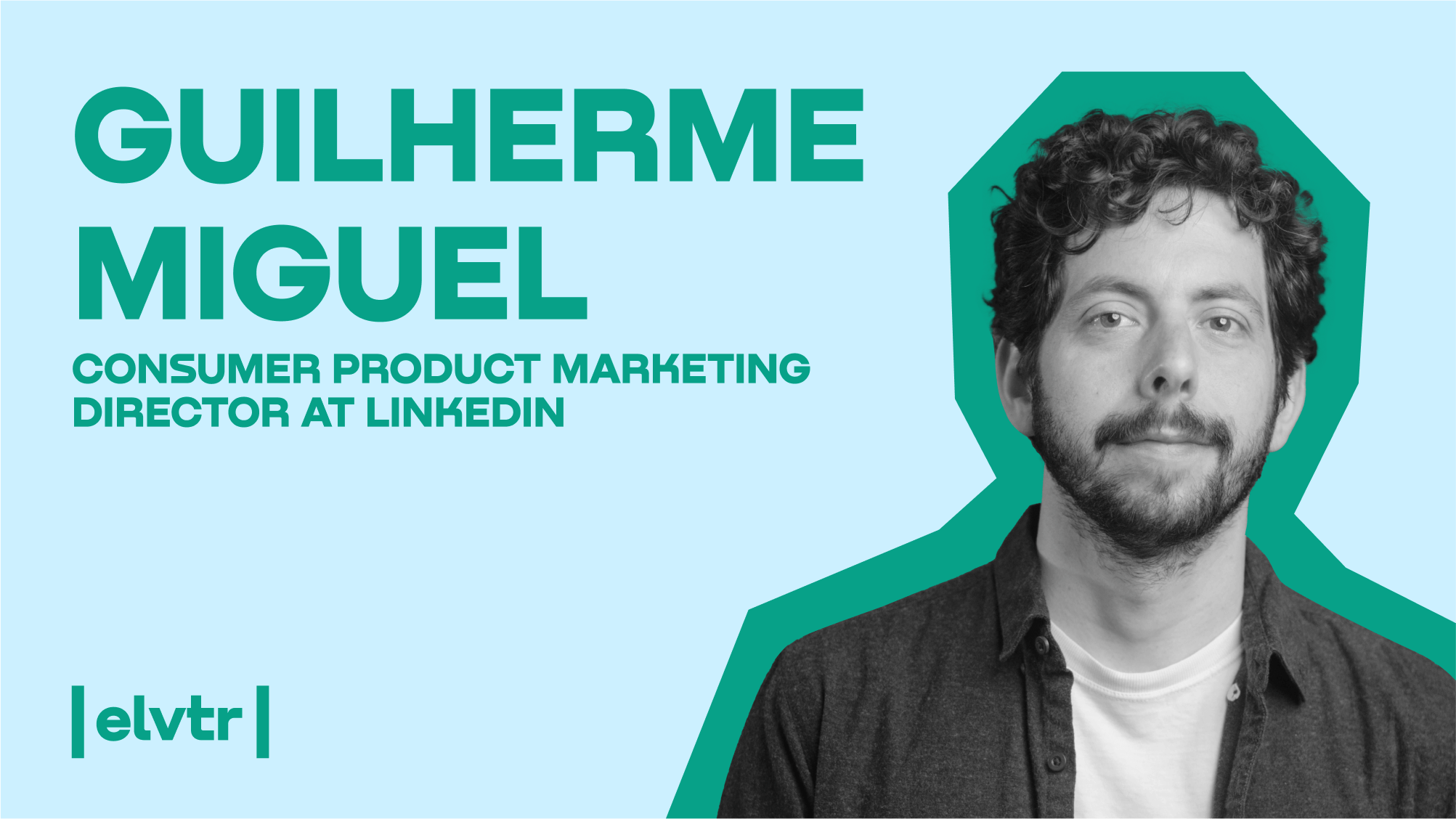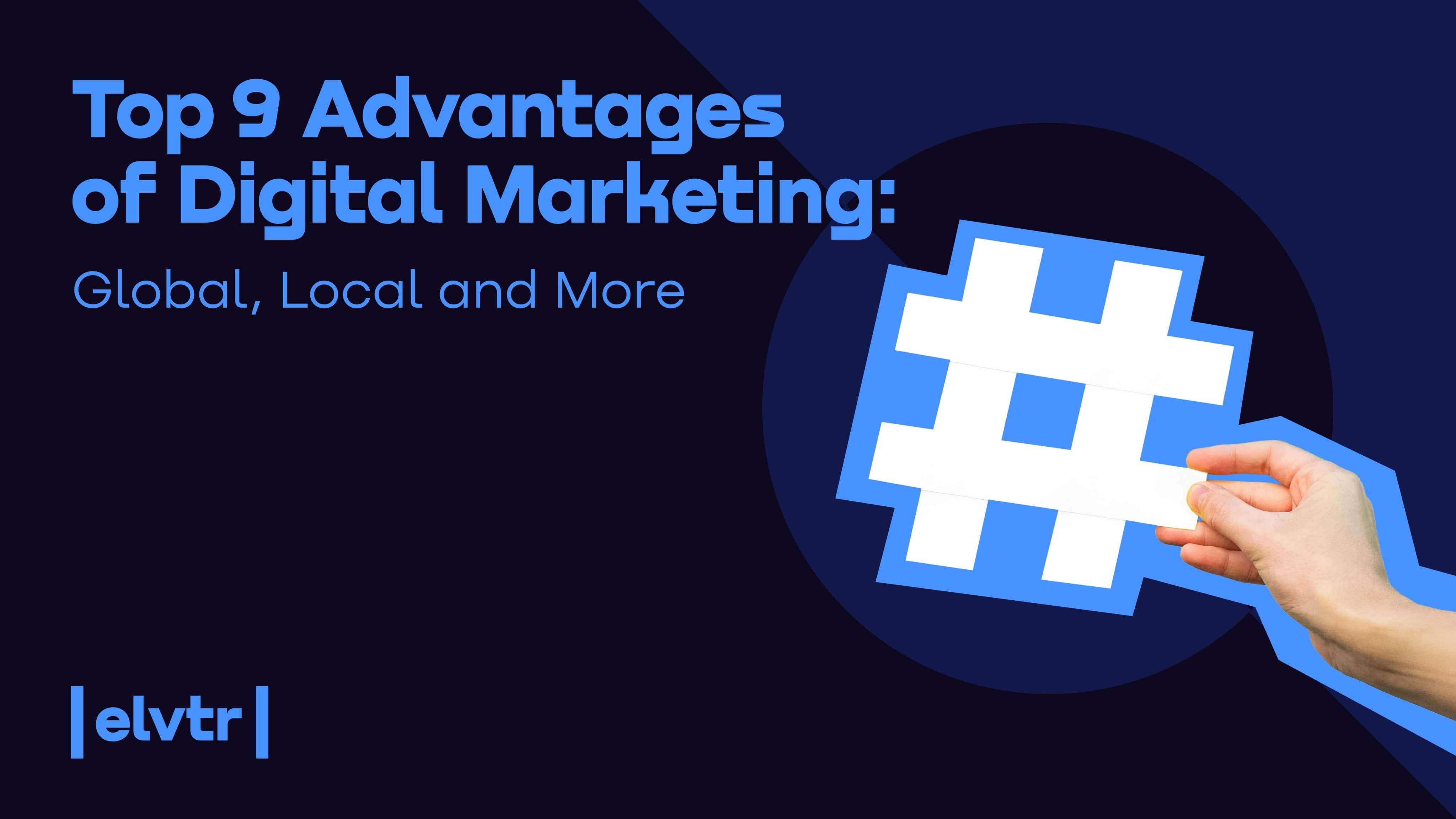- MAIN PAGE
- – elvtr magazine – LINKEDIN’S MARKETING EXPERT GUILHERME MIGUEL: “CONSUMERS WANT MORE ORIGINALITY”
LINKEDIN’S MARKETING EXPERT GUILHERME MIGUEL: “CONSUMERS WANT MORE ORIGINALITY”

Few business areas are changing faster than digital marketing; from AI to ever-shifting consumer trends, there is always something new to learn. Guilherme Miguel, a seasoned marketer who heads LinkedIn’s International Consumer Product Marketing team for the EMEA, Latam and APAC regions, knows this game from the inside out.
His previous experience at Unilever and Samsung offered him insights into more traditional approaches to the marketing craft. At Google, Miguel helped promote a wide range of products, including Chromecast, YouTube Gaming, Android and Google Assistant. But all that is bound to change, he argues, in an era of rapid technological and cultural disruption.
In the following paragraphs, Miguel shares his thoughts on the impact of generative AI on digital marketing, the secret of LinkedIn’s successful campaigns, and what it takes to hire and lead a team of marketing whizzes.
What trends will be shaping product marketing over the next few years?
Τhe world is becoming more specific and marketing disciplines more divided. Generative AI is already impacting the marketing world. We have tools that help us be more agile and spend less money. You just type a few words and you have a marketing copy, a review or images for your campaigns, done in a few seconds.
You might lose a bit of originality, but you have more effective productive tools. As technology develops, marketers will be successful if they know how to use it in their favor. That will be a differentiator for any professional, either working on product marketing campaigns or brand campaigns.
The counter-trend is that consumers also search for more genuine topics and originality. Crafted, locally-made, accessible, customized products will be more valued than ever. Local, smaller brands are rising fast through viral marketing.
For example, in the UK there are brands like Surreal, a cereals producer that is the opposite of Kellogg's. Or Oatly whose products compete with legacy firms. These brands represent a countermovement, reflecting how people are searching for less massively produced products.
Another trend is related to climate change. Gen Z users care a lot about the climate. My generation tried to change businesses, but this new generation makes real informed consumption decisions. They change the way they consume, asking questions about where products are coming from.
They prefer to buy second-hand things to have a negative footprint. They make difficult choices that my generation didn't make so often. This can really change the world.
After launching a product, how easy is it for a marketer to sustain the initial buzz?
The initial challenge is to go viral. It's not easy in a busy market where people are overwhelmed with information. One can still find tactics to go viral, such as using influencers with large reach for example. But you will have only short-term success. To sustain it, you have to meet and satisfy deep user’s needs. There is no other way.
How do you translate “building a vision and creating a strategy” into specific actions?
The first step is to understand who your target audience is. What are their needs? What problem only you can solve for them? It sounds cheesy, because it's the first thing that you learn at marketing school. We have all heard CEOs talking about putting users first. But doing that is a challenge. In the workplace, in chaotic organizations, you can easily forget about that.
Once you have understood your audience, it is important to then understand how your product solves their needs in the long, mid and short term. And just by doing this exercise, you can think of a vision that connects a long-term user need with your business opportunity through an inspiring, impactful statement.
What have your stints at LinkedIn and Google taught you about product marketing?
At each company I have worked for, I have learned something different. Google and LinkedIn are very similar, in the sense that they are very product-first compared to my previous employers. There is special attention to product development and continuously improving the product through short cycles of innovation. I've never seen that in other places.
At Unilever, we would work for two years to launch a new product, let's say a new soap, understanding the user. Then you would create the soap, convince retailers to buy it and put it on their shelves. People then consumed it and you would wait for a year to see how it performed. Then you made a decision on whether you would continue producing it.
At Google and LinkedIn, as these are digital companies, things are more fast-paced. People are open to new tests. You can rework things fast, just a week after launching a new feature. Even if it doesn't work, you can reposition. So what’s unique to these companies is their approach to a cycle of innovation that is more continuous. Due to the nature of business, there is less aversion to risk. You don’t need to build a whole new factory or production line to innovate. Google and LinkedIn are digital companies, so they can always test and experiment more.
We are solving consumer needs. So we create a job to be done and we are constantly revisiting the product. We are trying to find new ways of surprising the customer. In all industries, if you do that, you have a good chance to be successful.
YOU WOULD LIKE THIS ARTICLE:

Top 9 Advantages of Digital Marketing: Global, Local, and More
Reach your target audience in a few clicks.
What skills are you looking for when hiring new people for your team?
Good hiring is one of the important things a marketing director does. There are things every HR tells you to do: how you should hire people with specific values and skills that fit well in the company. We need to hear our HR teams and follow their recommendation, because there is a reason why they made such recommendations, which is that they want to create a team of people who can work well together, so finding commonalities is crucial.
But it is important to have your own perception as a leader too. You need to hire people who are willing to transform, make changes and challenge the status quo. That’s the first thing I look for when I'm hiring. I don't want people who think this is just another job and only do the basics.
The second thing is proactivity. That's the thing that differentiates a director from a manager. When you're a manager, you are closer to people and you can do a bit of hand-holding. But as a director, the team gets bigger and that becomes impossible. You should have people who are proactive and can do things with little guidance.
The third is collaboration. People who are good at collaborating, because you want team players, not people who just know how to work individually. People who don’t think others are stepping on their toes” and can work together.
The fourth is a key LinkedIn value: people who know how to have fun. The first time I heard our CEO saying that, I thought it wasn’t an important thing. That we were just trying to be cool. But this is a really important value. We don't want people who just think about money or just about themselves being egocentric, we need more professionals who know how to have fun and enjoy what they do.
What advice would you give marketers aspiring to become directors?
My first question to anyone who wants to get to the next level is ‘why’? You don't need to keep growing just because you work in a company. What are you looking for? You must have a very clear motivation, otherwise you can get very frustrated.
Second, think about whether your company will allow you to do that. Is there space for you to move to the next level? I've worked for different companies. I've seen cases in my team, including myself in the past, where there was no space. If so, you need to move to another team, area or even another company.
The third one is about yourself. What are the skills you need to develop to get there? What are the gaps you have in your profile? What should you learn? Think about your competencies.
As a marketing director, how do you align your strategy with that of other teams?
It’s almost like a relationship. You need to find a common problem to get to a common solution together. And then influence the other person/team to do things in collaboration.
You need to concede sometimes, and also push the other side. It’s a negotiation. Each part needs to give something to get to the objective.
Is there a marketer you admire and why?
I really like Yvon Chouinard, the founder of Patagonia. He created an amazing company by being true to himself and developing a business aligned with his values and passion: life outdoors.
He might not consider himself a marketer. But I think he revolutionized the world of marketing by making Patagonia’s marketing focus on environmental activism. The company gets lots of media coverage and is loved by consumers worldwide because of the positive impact the brand has on the world.
They have supported multiple environmental causes. They have also launched campaigns redirecting their marketing budgets to support the earth. As a result, they are building a really strong brand that is valued by Generation Z.
Is there a book that you would recommend to aspiring marketing directors?
I loved Harari’s Sapiens and 21 lessons for the 21st century. In some ways, I would consider it a marketing book, although you won't see it in a bookshop’s marketing section. It talks about evolution, society, technology trends, all shaping how the marketing world works. I think every marketer should read it.
For purely marketing books, I would go for the classics: Philip Kotler. What he wrote is still true. If you are confused and wondering what to do as a marketer, just read what Kotler said ages ago. He introduced the four P's of marketing, and it’s all still true. It's all about distribution, communication, pricing, product. It's still a great summary of how you should approach your marketing framework.
*ELVTR is disrupting education by putting proven industry leaders in a virtual classroom with eager rising stars. ELVTR courses offer 100% instructor driven content designed to give you practical knowledge within a convenient time frame. Choose the right course for you!



